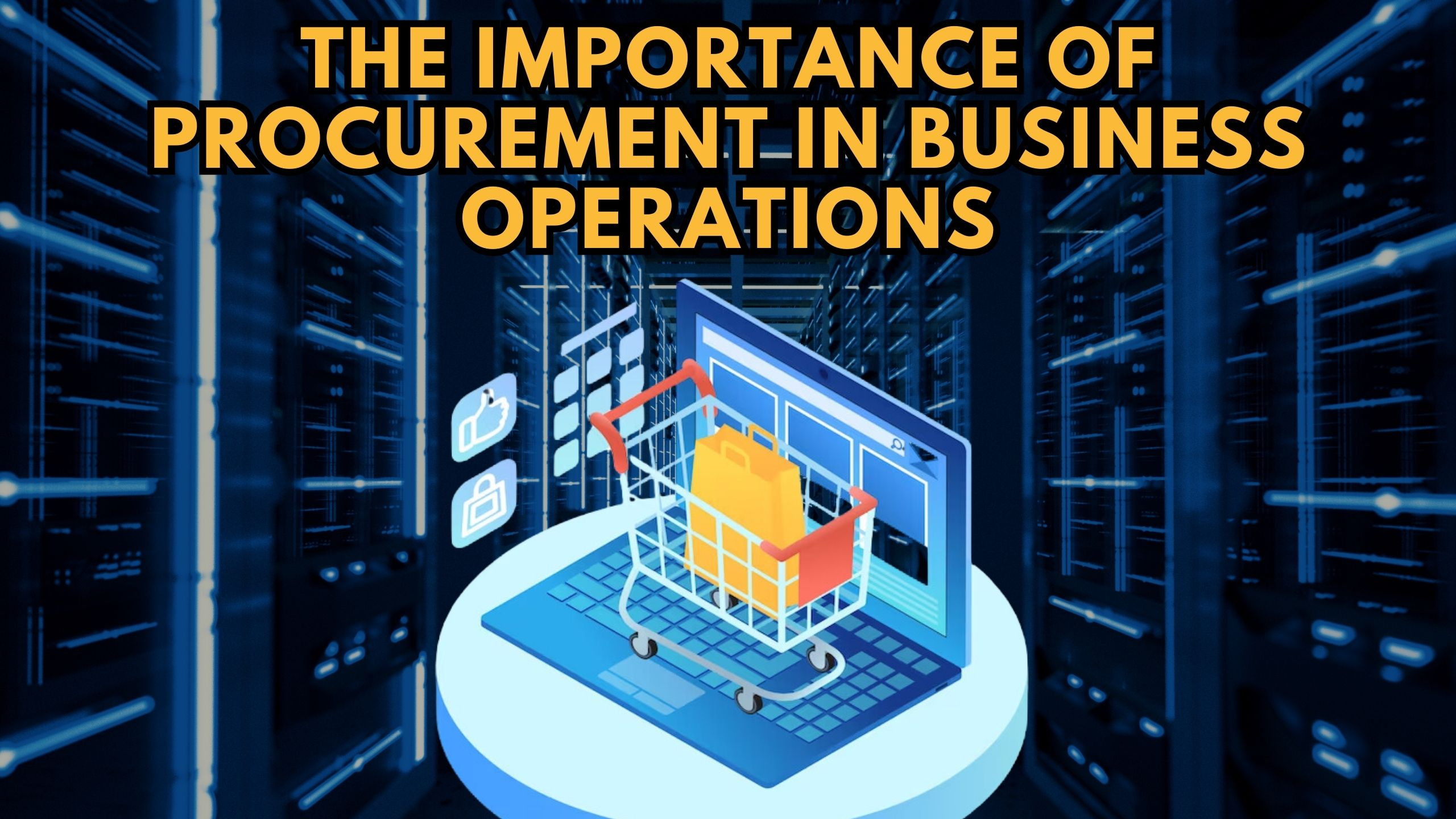The Importance of Procurement in Business Operations
- Expense Management Software Credit Cards Investing Business Solutions


The Importance of Procurement in Business Operations
Procurement plays a pivotal role in ensuring businesses have the goods, services, and capabilities required to effectively carry out operations. More than just purchasing, modern procurement focuses on value creation and strategic alignment across all spending. Let’s explore why procurement deserves a seat at the strategy table.
What is Procurement?
Procurement refers to the processes involved in acquiring all categories of goods and services that a business needs to function productively. This includes not just direct spend categories like raw materials and equipment, but also indirect expenses like consultancy, marketing services, software, travel, and more.
Typically managed by a procurement department, these processes aim to deliver the best value when sourcing these requirements from external suppliers. This encompasses price, quality, reliability, sustainability, and other parameters that impact value.
Leading SaaS products servicing procurement needs include Tradeshift, SAP Ariba, and Zycus. With automation and data insights, these platforms are transforming traditional manual sourcing and purchasing.
Evolving from Tactical to Strategic
Historically, procurement has been viewed as a tactical cost-focused function with limited strategic impact. But modern procurement leaders now have a seat at the strategy discussion table. This shift acknowledges procurement’s immense potential to create value across the business.
Procurement decisions influence virtually every aspect of operations from production workflows to inventory management, R&D directions, sustainability goals, and more. Instead of passive order placers, today’s procurement leaders actively strategize to uplift business performance.
Key Benefits of Strategic Procurement
Aligning procurement with overarching business objectives unlocks many tangible and intangible gains. Let’s examine some of the most notable benefits.
1. Financial Savings
Strategic procurement delivers significant cost savings and operational efficiencies across sourcing categories. Consolidating spending, running competitive tendering, leveraging economies of scale, and ensuring supplier compliance reduces external spend.
Automation and data-driven insights also decrease costs of procurement processes themselves. According to McKinsey, world-class procurement organizations operate with 80% lower costs than average performers.
2. Enhanced Innovation
Collaborative supplier relationships spur innovations in materials, processes, and technologies. Procurement leaders who engage suppliers early in product development cycles rather than just issuing orders can catalyze R&D breakthroughs.
3. Supply Chain Resilience
By balancing cost priorities with supply chain transparency, compliance, and continuity considerations, procurement minimizes disruptions risks. Well-developed contingency supply plans also enhance resilience to external shock events.
4. Sustainability Goals
Procurement decisions directly impact the environmental footprint of operations. Sustainable sourcing policies and supplier ESG assessments help strengthen sustainability performance across the value chain.
5. Competitive Advantage
Procurement excellence boosts quality, productivity, profitability and delivers an overall competitive edge. Companies with procurement focused on value creation consistently outperform peers on financial metrics.
Key Capabilities for Strategic Procurement
Transforming procurement requires building capabilities for data-driven decision making, cross-functional collaboration, risk management, and change leadership across the sourcing lifecycle.
Investments in procurement software also enable better spend analysis, supply market intelligence, supplier management, contract lifecycle oversight, tendering, auctions, and source-to-pay processes automation. When integrated with ERPs, these systems provide the foundation for fact-based procurement strategies targeting business goal achievement.
Conclusion
Procurement has rapidly evolved from a siloed cost center to an agile value-creation engine integrated into business operations. However, seizing procurement’s strategic potential requires purposeful initiatives to uplift capabilities and embed analytical rigor across sourcing categories. The time for procurement to step up and steer enterprise success is now.
Unlock Secret Deals and Save Big
Unlock free member-only deals with our platform. Sign up for free today to unlock savings on 100+ SaaS tools, and start enjoying the perks totaling savings of $100,000+ per year here Subscribed.fyi Deals. Your secret deals are just a click away!
Ultimate subscription management solution that lets you effortlessly find, track expenses, and monitor, cancel and renegotiate all your subscriptions in one place. With a single click, take control of your expenses like never before.
Relevant Links:








